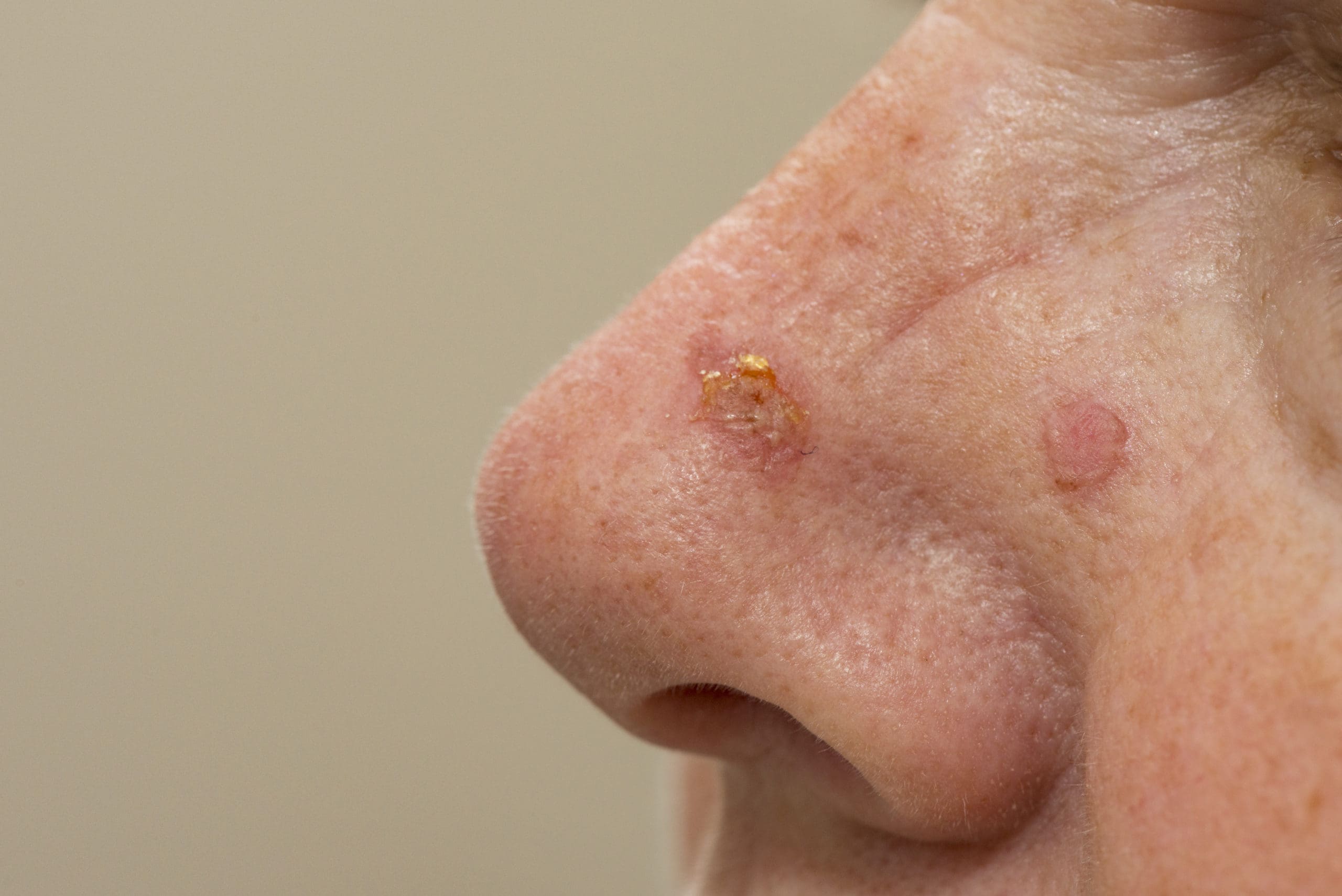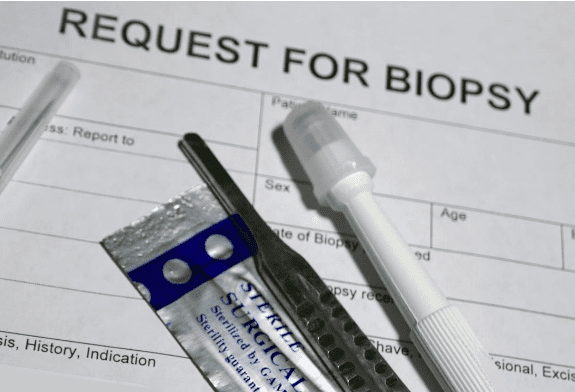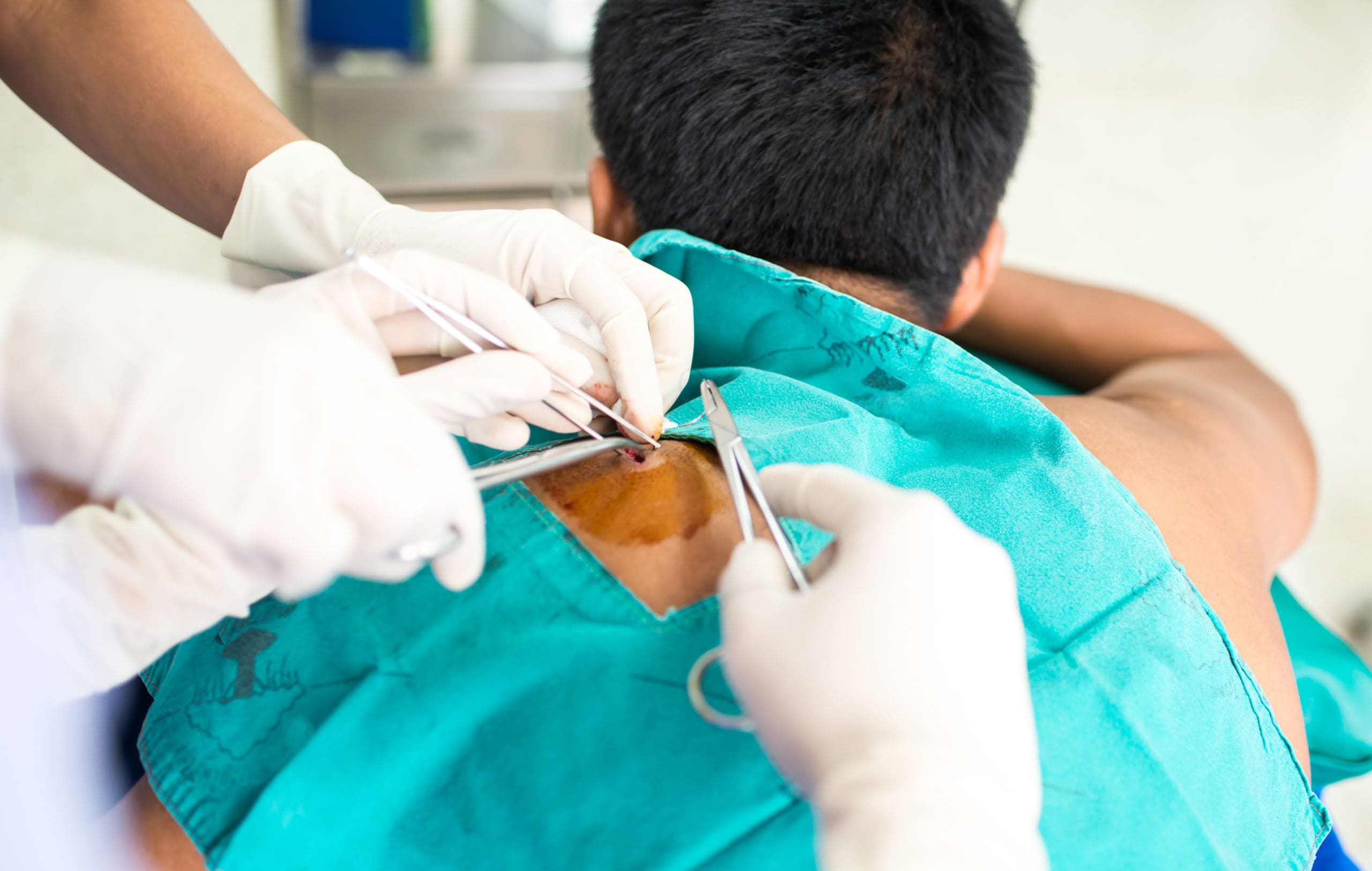
Skin cancer and pre-cancers are amongst the most serious of all skin conditions. The most common types are basal cell carcinoma (BCC), squamous cell carcinoma (SCC), and melanoma. These pre-cancers and cancers typically look like pink or red (or even brown) bumps or rough (like sandpaper) spots.
Additionally, pre-cancerous actinic keratosis (AK) and atypical/dysplastic nevi (abnormal moles) are common and should be treated. Pre-cancers are not yet deep or severe enough to be a cancer, so they may look or feel subtle, and may even appear to be healed up sometimes, but they always come back.
In general, any pink or red spot that doesn’t heal in a month, bleeds, or grows quickly should be evaluated for skin cancer. New or changing moles or spots should be diagnosed and treated by a well trained board-certified dermatologist like Dr. Steele Johnson-Johnson. Schedule an appointment online or give us a call at (770) 464-6000.
Medical Dermatology
What causes skin cancer?
- Basal cell and squamous cell cancers are very much linked to ultraviolet radiation (from the sun or tanning beds) and skin type/color. They almost always occur in areas of sun damage and in people who have less defense from UV radiation from the sun. If you burn easily in the sun, then consequently you are at higher risk for these types of skin cancer. Those with a lifetime of sun exposure, especially those that work (or play) outdoors in the sun, also have a markedly increased risk of skin cancer.
- Some types of squamous cell cancer can occur in scars or areas of radiation and are unrelated to the sun. In addition, a type of squamous cell cancer can occur in the genital area in association with human papillomavirus (HPV). So, it’s important to be on the lookout for any abnormal bumps or lesions even if they occur in areas not exposed to the sun.
- If you have multiple squamous cell and/or basal cell cancers starting from a young age, you likely have some genetic predisposition. Additionally, anyone who is immunosuppressed is at higher risk because your immune system isn’t as well equipped to prevent skin cancers.
Where do you get skin cancer?
Given the correlation between sun exposure and skin cancer, you usually get SCC and BCC on parts of the body that get the most sun. For men and women, this tends to be on the face, arms, and hands. Additionally for women, the chest and legs are higher-risk areas. For men, we also pay close attention to the scalp and ears because they tend to be more exposed.
How do we treat skin cancer?
Any potential skin cancer will first be identified by you or your dermatologist, then we will do a biopsy to confirm the diagnosis. Once we know that it is a cancer and what type of cancer, we will schedule an excision (cutting it out) including taking out the lesion and a margin of clear safety tissue around it to make sure we get the entire lesion and any roots. If the lesion is very large, very aggressive or on certain areas of the body (face, scalp, ears, lower legs) then we will refer you to Mohs surgery (specialized skin cancer surgery) for treatment.
Certain very superficial skin cancers can be treated with a chemotherapy cream that will be applied at home for several weeks.
Pre-cancers/AKs usually don’t need to be biopsied. Your dermatologist can identify these by exam alone. They will be treated with liquid nitrogen cryotherapy or a topical chemotherapy cream (if you have multiple in one area).

Biopsy
A sample of skin needs to be removed to make certain diagnoses, especially skin cancer. The area is first numbed, then a significant sample of the lesion or rash will be removed and sent to the lab for pathologists to diagnose.

Excision
As opposed to a biopsy, excision is a procedure to remove an entire lesion (rather than sample it). Typically an excision comes after a biopsy has confirmed a diagnosis. You will have stitches following excision and have certain restrictions on activity after the procedure.
Recommended products
Schedule an Appointment
It is really important to check the whole body/skin surface for skin cancer and pre-cancers. Although they will usually occur in sun-exposed areas, this isn’t always the case. If you have a suspicious spot, no matter where it is, please make an appointment or give us a call at (770) 464-6000 to get it checked out.



